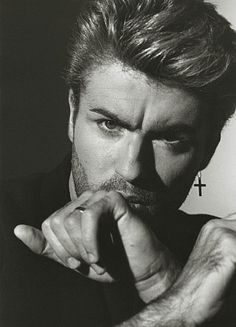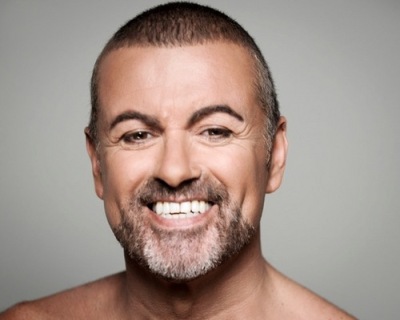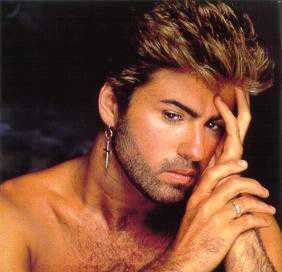 At the age of 19, Michael told Andrew Ridgeley and close friends that he was bisexual. Michael also told one of his two sisters, but he was advised by friends not to tell his parents about his sexuality. In a 1999 interview with The Advocate, Michael told the Editor in Chief, Judy Wieder, that it was “falling in love with a man that ended his conflict over bisexuality.” “I never had a moral problem with being gay,” Michael told Wieder. “I thought I had fallen in love with a woman a couple of times. Then I fell in love with a man, and realized that none of those things had been love.” In 2007 Michael said he had hidden the fact he was gay because of worries over what effect it might have on his mother. Speaking about his time with Wham! in the 1980s, Michael said: “I used to sleep with women quite a lot in the Wham! days but never felt it could develop into a relationship because I knew that, emotionally, I was a gay man. I didn’t want to commit to them but I was attracted to them. Then I became ashamed that I might be using them.” In 2009, Michael said: “My depression at the end of Wham! was because I was beginning to realise I was gay, not bisexual.”
At the age of 19, Michael told Andrew Ridgeley and close friends that he was bisexual. Michael also told one of his two sisters, but he was advised by friends not to tell his parents about his sexuality. In a 1999 interview with The Advocate, Michael told the Editor in Chief, Judy Wieder, that it was “falling in love with a man that ended his conflict over bisexuality.” “I never had a moral problem with being gay,” Michael told Wieder. “I thought I had fallen in love with a woman a couple of times. Then I fell in love with a man, and realized that none of those things had been love.” In 2007 Michael said he had hidden the fact he was gay because of worries over what effect it might have on his mother. Speaking about his time with Wham! in the 1980s, Michael said: “I used to sleep with women quite a lot in the Wham! days but never felt it could develop into a relationship because I knew that, emotionally, I was a gay man. I didn’t want to commit to them but I was attracted to them. Then I became ashamed that I might be using them.” In 2009, Michael said: “My depression at the end of Wham! was because I was beginning to realise I was gay, not bisexual.”
Michael was born Georgios Kyriacos Panayiotou in East Finchley, North London. His father, Kyriacos Panayiotou, a Cypriot restaurateur, moved to England in the 1950s and changed his name to Jack Panos. Michael’s mother, Lesley Angold (née Harrison, 1937–1997), was an English dancer. Michael spent the majority of his childhood in Kingsbury, North West London, in the home his parents bought soon after his birth, where he attended Kingsbury High School. While in his early teens, the family moved to Radlett, Hertfordshire. There Michael attended the Bushey Meads School in the neighbouring town of Bushey, where he met Andrew Ridgeley. The two had the same career ambition of being musicians. Michael would busk on the London Underground, performing songs such as “’39” by Queen.
His involvement in the music business began with his working as a DJ, playing at clubs and local schools around Bushey, Stanmore and Watford. This was followed by the formation of a short-lived ska band called The Executive with Ridgeley, Ridgeley’s brother Paul, Andrew Leaver, and David Mortimer (aka David Austin). Michael first found success after forming the duo Wham! with Andrew Ridgeley in 1981. The band’s first album Fantastic reached no. 1 in the UK in 1983 and produced a series of top 10 singles including “Young Guns”, “Wham Rap!” and “Club Tropicana”. Their second album, Make It Big reached No. 1 on the charts in the US. Singles from that album included “Wake Me Up Before You Go-Go”, “Freedom”, “Everything She Wants”, and “Careless Whisper”, the latter of which was Michael’s first solo effort as a single.
 Michael sang on the original Band Aid recording of “Do They Know It’s Christmas?” and donated the profits from “Last Christmas/Everything She Wants” to charity. In addition, he contributed background vocals to David Cassidy’s 1985 hit “The Last Kiss”, as well as Elton John’s 1985 successes “Nikita” and “Wrap Her Up”. Michael cited Cassidy as a major career influence and interviewed Cassidy for David Litchfield’s Ritz Newspaper. Wham!’s tour of China in April 1985, the first visit to China by a Western popular music act, generated enormous worldwide media coverage, much of it centred on Michael. The tour was documented by film director Lindsay Anderson and producer Martin Lewis in their film Foreign Skies: Wham! In China.
Michael sang on the original Band Aid recording of “Do They Know It’s Christmas?” and donated the profits from “Last Christmas/Everything She Wants” to charity. In addition, he contributed background vocals to David Cassidy’s 1985 hit “The Last Kiss”, as well as Elton John’s 1985 successes “Nikita” and “Wrap Her Up”. Michael cited Cassidy as a major career influence and interviewed Cassidy for David Litchfield’s Ritz Newspaper. Wham!’s tour of China in April 1985, the first visit to China by a Western popular music act, generated enormous worldwide media coverage, much of it centred on Michael. The tour was documented by film director Lindsay Anderson and producer Martin Lewis in their film Foreign Skies: Wham! In China.
With the success of Michael’s solo singles, “Careless Whisper” (1984) and “A Different Corner” (1986), rumours of an impending break up of Wham! intensified. The duo officially separated during the summer of 1986, after releasing a farewell single, “The Edge of Heaven” and a singles compilation, The Final, plus a sell-out concert at Wembley Stadium that included the world premiere of the China film. The Wham! partnership ended officially with the commercially successful single “The Edge of Heaven”, which reached no.1 on the UK chart in June 1986. During the autumn of 1987, Michael released his first solo album, Faith. In addition to playing a large number of instruments on the album, he wrote and produced every track on the recording, except for one, which he co-wrote. The first single released from the album was “I Want Your Sex”, during the summer of 1987. The song was banned by many radio stations in the UK and US, due to its sexually suggestive lyrics. The second single, “Faith”, was released during October 1987, just a few weeks before the album. “Faith” would become one of his most popular songs. The song hit No.1 on the Billboard Hot 100 in the US and maintained that position for four consecutive weeks. It also reached no.2 in the UK Singles Chart. The famous video provided some definitive images of the 1980s music industry in the process—Michael in shades, leather jacket, cowboy boots, and Levi’s jeans, playing a guitar near a classic-design jukebox.
 On 30 October, Faith was released in the UK and in several markets worldwide. In the United States, the album had 51 non-consecutive weeks in the Top 10 of Billboard 200, including 12 weeks at no.1. “Faith” had many successes, four of which (“Faith”, “Father Figure”, “One More Try”, and “Monkey”) reached no. 1. Eventually, “Faith” received Diamond certification by the RIAA for sales of 10 million copies in the US. To date, global sales of Faith are more than 25 million units.
On 30 October, Faith was released in the UK and in several markets worldwide. In the United States, the album had 51 non-consecutive weeks in the Top 10 of Billboard 200, including 12 weeks at no.1. “Faith” had many successes, four of which (“Faith”, “Father Figure”, “One More Try”, and “Monkey”) reached no. 1. Eventually, “Faith” received Diamond certification by the RIAA for sales of 10 million copies in the US. To date, global sales of Faith are more than 25 million units.
 Michael established a relationship with Anselmo Feleppa, a male Brazilian dress designer, whom he had met at the 1991 concert Rock in Rio. Six months into their relationship, Feleppa discovered that he had HIV. Michael later said: “It was terrifying news. I thought I could have the disease too. I couldn’t go through it with my family because I didn’t know how to share it with them – they didn’t even know I was gay.” In 1993, Feleppa died of an AIDS-related brain haemorrhage. Michael’s single “Jesus to a Child” is a tribute to Feleppa (he consistently dedicates it to him before performing it live), as is his 1996 album Older. In 2008, speaking about the loss of his partner Feleppa, Michael said: “It was a terribly depressing time. It took about three years to grieve, then after that I lost my mother. I felt almost like I was cursed.” In 1996, Michael entered into a long-term relationship with Kenny Goss, a former flight attendant, cheerleader coach and sportswear executive from Dallas. They had homes in Dallas and an £8 million mansion in Highgate, North London. In late November 2005, it was reported that Michael and Goss would register their relationship as a civil partnership in the UK, but because of negative publicity and his upcoming tour, they postponed it to a later date.
Michael established a relationship with Anselmo Feleppa, a male Brazilian dress designer, whom he had met at the 1991 concert Rock in Rio. Six months into their relationship, Feleppa discovered that he had HIV. Michael later said: “It was terrifying news. I thought I could have the disease too. I couldn’t go through it with my family because I didn’t know how to share it with them – they didn’t even know I was gay.” In 1993, Feleppa died of an AIDS-related brain haemorrhage. Michael’s single “Jesus to a Child” is a tribute to Feleppa (he consistently dedicates it to him before performing it live), as is his 1996 album Older. In 2008, speaking about the loss of his partner Feleppa, Michael said: “It was a terribly depressing time. It took about three years to grieve, then after that I lost my mother. I felt almost like I was cursed.” In 1996, Michael entered into a long-term relationship with Kenny Goss, a former flight attendant, cheerleader coach and sportswear executive from Dallas. They had homes in Dallas and an £8 million mansion in Highgate, North London. In late November 2005, it was reported that Michael and Goss would register their relationship as a civil partnership in the UK, but because of negative publicity and his upcoming tour, they postponed it to a later date.
Related Articles:


You must be logged in to post a comment.